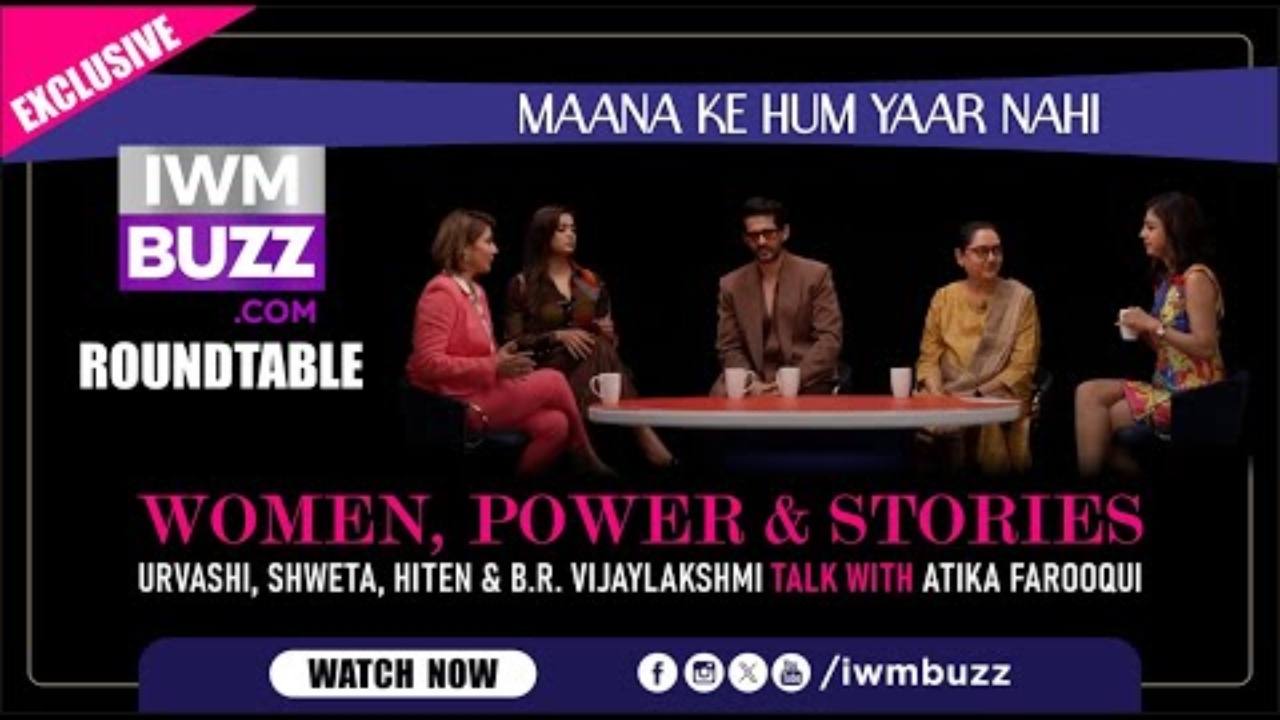Right before the premiere of Star Plus’ Maana Ke Hum Yaar Nahi, IWMBuzz hosted a roundtable in Mumbai. But this wasn’t the usual press event packed with rehearsed answers and promotional soundbites. It felt more like a gathering of people who’ve seen the industry shift under their feet, and who’ve shifted with it.
Atika Farooqui led the conversation with all steadiness. Around the table sat Urvashi Dholakia, Shweta Tiwari, Hiten Tejwani, and B.R. Vijayalakshmi, people who’ve lived through the eras of Indian television that many still look back on with rose-tinted lenses.
The energy in the room wasn’t nostalgic for the sake of it. There was laughter, yes, stories of long nights on Film City sets, makeshift snow created with salt, six shows being shot simultaneously, but beneath that was a sense of pride. Not in the fame, but in the work. In how much was built, often with very little.
There was also something unspoken, yet clearly felt, a kind of bond that doesn’t rely on constant contact. These weren’t just co-actors. They were people who had stood shoulder-to-shoulder through the grind and somehow, years later, still showed up for each other.
As the discussion turned to the themes of the show, second marriages, blended families, and starting over, the tone naturally shifted. This wasn’t a surface-level chat about plotlines. It became personal. The decisions women make, especially when they have children, carry so much unseen weight. There was no judgment in the room, only empathy. Every person at that table understood what it means to choose a harder path for the sake of someone else.
What emerged clearly was the emotional cost of navigating family dynamics when societal expectations loom large. It isn’t easy to say no to convention, whether it’s about marriage, motherhood, or how a “happy” family should look — and the women at the table knew that all too well. Their reflections weren’t framed as statements of strength, but relatively quiet acknowledgements of survival.
The conversation also pushed against outdated gender norms. The show, and the people behind it, aren’t interested in telling stories of helpless women waiting to be saved. They’re far more interested in characters who take action, who stumble and adapt and figure things out — the way people do in real life.
There was a clear sense that what audiences want now has changed. No more melodrama for drama’s sake. What connects people today are the small, intimate truths — women trying to balance peace with ambition, men learning how to show up without overpowering, relationships built on partnership instead of power games.
Maana Ke Hum Yaar Nahi leans into that shift. The central character, Khushi, earns her living by ironing clothes. It’s not a glamorous job, but it becomes a powerful metaphor in the show. She carries heat and pressure every day, just like many women do, and still holds everything together.
Her story, and that of Krishna, a man dealing with mental health issues, doesn’t follow the expected romance arc. Instead, it explores what happens when two people decide to face life side by side, not out of love at first sight, but out of shared understanding and resilience. It’s not flashy. It’s human.
Toward the end of the roundtable, things got lighter. There was a playful back-and-forth about food, Chennai’s idli-sambar versus Mumbai’s vada pav. It was a moment that said more than it seemed to. Despite all the regional differences, the heart of storytelling remains the same. Whether it’s a housewife in Andheri or a domestic worker in Chennai, the challenges of womanhood, work, and identity echo across geography.
That’s what made this roundtable stand out. It wasn’t just about promoting a show. It was about pausing to acknowledge how far things have come in the industry, in culture, and in personal lives. The fact that television is finally catching up with reality, telling stories that feel lived-in rather than written from a distance, is reason enough to pay attention.
Maana Ke Hum Yaar Nahi is all set to air on October 29th.

